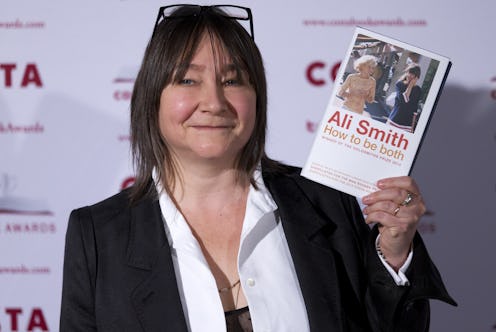Books
Your Women's Prize for Fiction 2015 Winner Is...
Since its beginnings 20 years ago, really any winner in the Women's Prize for Fiction is a winner for all women, writers or not. Thursday, chairperson of the judging committee Shami Chakrabarti announced the Baileys Women's Prize for Fiction 2015 winner Ali Smith for How to Be Both.
"Are you sure?" quipped Smith when chairperson Shami Chakrabarti announced the award.
The judging committee called How to Be Both "modern literary magic." It centers on two separate but intertwined stories: one of painter the late painter Francesco del Cossa whose ghost travels to modern-day Cambridge, and the second of a young girl who is studing one of Cossa's paintings. It's challenging, genre-bending, and completely innovative.
How to Be Both is Smith's sixth novel, and though she has appeared on the Baileys Women's Prize for Fiction shortlist before, she has never taken home the grand prize until this year.
"It's not even my birthday," said Smith onstage after receiving her award.
Smith's How to Be Both beat out five other exceptional titles by women authors on the shortlist.
- Outline by Rachel Cusk
- The Bees by Laline Paull
- A God in Every Stone by Kamila Shamsie
- A Spool of Blue Thread by Anne Tyler
- The Paying Guests by Sarah Waters
So clearly Lauren Laverne, host of the event and U.K. DJ and presenter, was 100 percent correct when she said,"2015 is a really exciting time to be a woman, and it's an even more exciting time to be a reader."
Formerly called the Orange Prize for Fiction, Baileys Women's Prize for Fiction is awarded every year to full-length fiction by female authors across the globe. It is a crucial award in the literary landscape, particularly after new data shows there's a major imbalance between male and female literary award winners. Counting up six different literary awards over the past 15 years, data shows that only 13 percent, or 12 out of 90, award winners were books by women about women. Ridiculous. In fact, the award began back in 1991 when the Booker Prize shortlist included no, as in ZERO, women.
To illustrate just how important this award is, founder of the award Kate Mosse, said "Fiction can and does make a difference."
